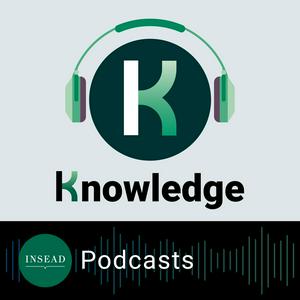In this era of "permacrisis" and constant disruption, adaptability and resilience are vital traits that require collaboration and an increasing focus on human-centric skills. That’s the messaging to come out of the 2025 Global Talent Competitive Index (GTCI), an annual report that highlights the latest talent trends and offers insights into the current global talent landscape.
For this episode of “The INSEAD Perspective: Spotlight on Asia” podcast series, Sameer Hasija, Dean of Asia at INSEAD, analyses the results and implications of the 11th edition of the GTCI through an APAC lens alongside two of its authors: L. Felipe Monteiro, Academic Director of the GTCI and Senior Affiliate Professor of Strategy, and Paul Evans, Emeritus Professor of Organisational Behaviour. Perhaps the most notable theme from the 2025 report is the shifting value of human capabilities, where soft human-centric skills are becoming just as vital as hard digital or technical skills. As AI handles increasingly complex technical tasks, Monteiro and Evans suggest that "generalist adaptive skills" – including leadership, innovation, creativity and entrepreneurship – will increasingly take centre stage.
Reflecting on the high ranking of certain countries such as Singapore, Switzerland and the Nordic nations, Evans points to the strength of their integrated ecosystems, where government, business, educational institutions and labour organisations work together to solve problems using a forward-looking approach. He warns that without this deep ecosystem collaboration and a long-term vision, even technologically advanced nations may struggle to implement the systemic changes required to thrive in today’s disrupted global economy.
That potential danger is highlighted in a concerning trend identified in the report, where several upper-middle-income countries, such as Malaysia, Brazil and Mexico, appear to have reached a "talent plateau" or “trap". Despite making good headway in the earlier stages of their development, these countries have seen their progress stall as they find themselves squeezed between high-innovating top-tier countries and lower-income countries with cost advantages. Levels of optimism for the future were mixed among the three speakers.
However, they agreed that greater collaboration, an increased emphasis on lifelong education and the ability of individuals to learn and adjust on the job will be vital if countries and companies hope to successfully navigate the uncertain waters of the next five years – and beyond.


